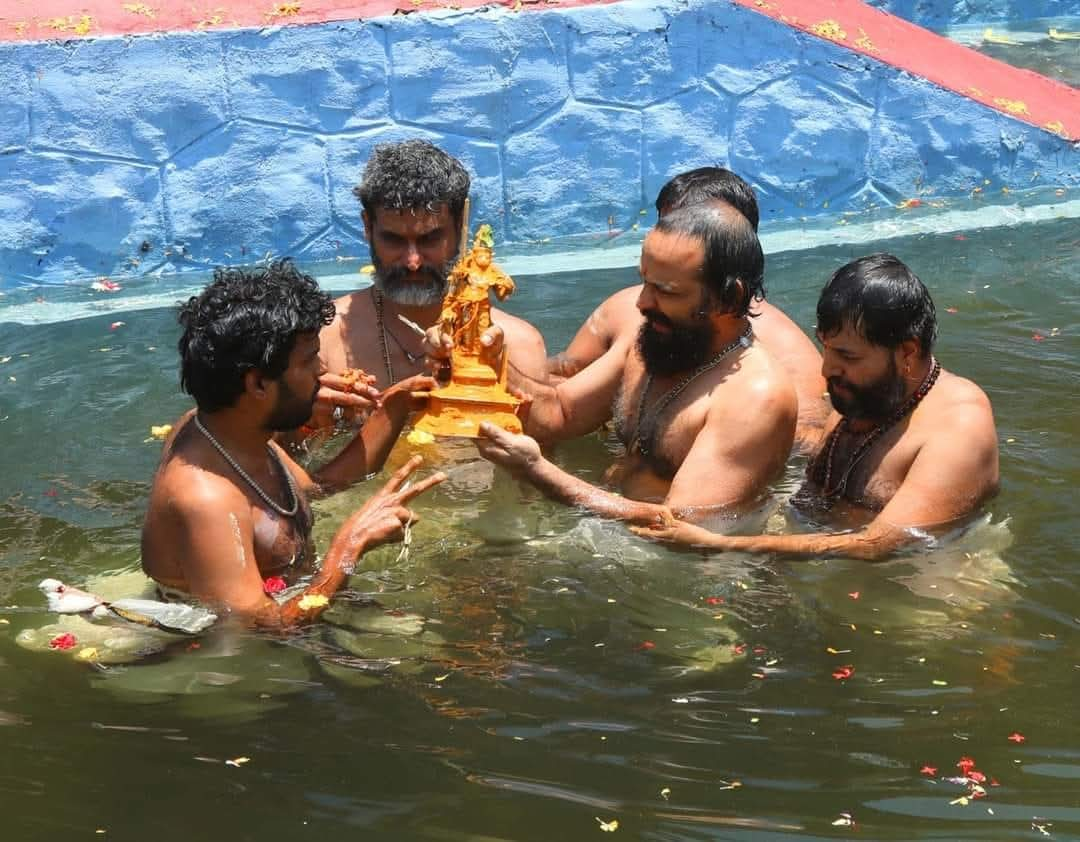What is Arattu ? Sabarimala Annual Festival:Know More

Ārāttu is a traditional Hindu temple ritual, especially prominent in Kerala, India. The word “ārāttu” (ആറാട്ട്) in Malayalam literally means “holy bath.” It refers to the ceremonial bathing of a temple deity’s idol, usually in a river, pond, or the sea, marking the completion of a temple festival.
Sabarimala – The Completion of the Annual Festival
The Sabarimala Temple, dedicated to Lord Ayyappan, also observes an ārāttu ceremony as part of its annual festival (utsavam) held in the Malayalam month of Meenam (March–April). This is a ritual that marks the conclusion of the 10-day annual festival.
Key Aspects of the Sabarimala Ārāttu:
Location of the Ārāttu: The ārāttu of Lord Ayyappa takes place at the Pampa River,The river is considered highly sacred and associated with purification rituals for devotees.
The Deity’s Procession: The utsava murti (festival idol) of Lord Ayyappa is taken in a grand procession (called Ezhunnallathu) from the Sreekovil (sanctum sanctorum) of the Sabarimala temple to the Pampa River.
Traditional Rituals:
Vedic chanting, melam, and traditional drumming accompany the procession.
The deity is bathed in the river amidst chants and rituals performed by Thantris (chief priests) and temple authorities.
Famous Ārāttu Events:
Sree Padmanabhaswamy Temple, Thiruvananthapuram: One of the most famous ārāttu ceremonies, where the royal family of Travancore still plays a ceremonial role. The deity is taken to the Shankumugham Beach for ārāttu, and the city observes partial shutdowns to honor the ritual.
Thrissur Pooram and Guruvayur Sree Krishna Temple Arattu and Arattupuzha Pooram and Chengannur Mahadev Temple,
